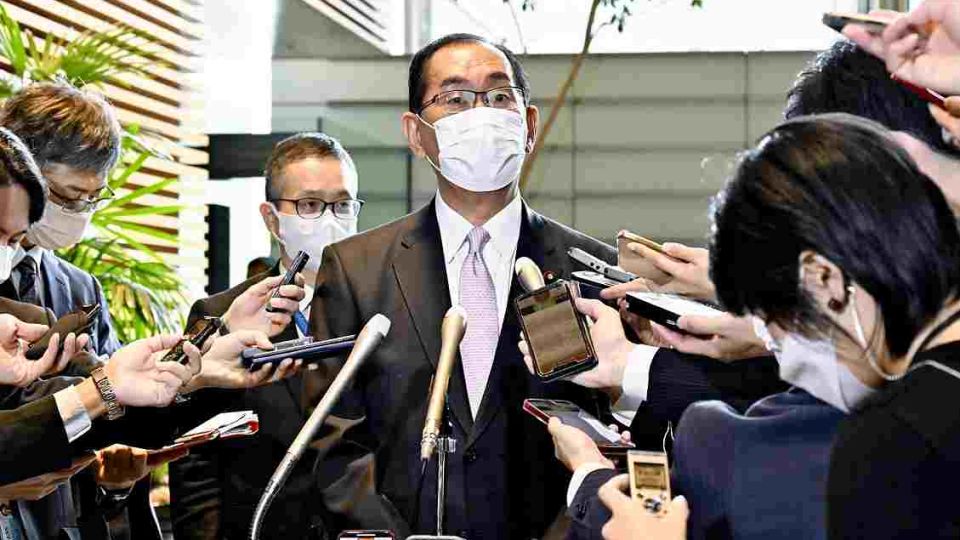November 22, 2022
TOKYO – For the third time in a month, a member of Prime Minister Fumio Kishida’s Cabinet has resigned.
A political funds scandal led to Internal Affairs and Communications Minister Minoru Terada’s ouster on Sunday, as Kishida made him tender his resignation.
Kishida announced Monday the appointment of former Foreign Minister Takeaki Matsumoto as Terada’s replacement. Matsumoto officially assumed the post following a ceremony at the Imperial Palace the same day.
The political upheaval has dealt a major blow to the operations of Kishida’s government as all three resignations are coming during an extraordinary Diet session. Kishida is scrambling to rebuild his administration before Diet deliberations start on the second supplementary budget for fiscal 2022, which will fund the government’s comprehensive economic stimulus measures.
As a succession of allegations emerged against Terada, the prime minister concluded that deliberations in the Diet would inevitably be stalled if Terada was allowed to stay in the post. Kishida’s decision was once again conspicuous in its delay following the earlier removal of two other ministers, revealing his lack of ability to respond to a crisis.
“I deeply apologize for the series of Cabinet member resignations during the Diet session,” Kishida said to reporters at his official residence after receiving the resignation letter from Terada. “I’m aware of my grave responsibility for having appointed them.”
The other two ministers to resign were Daishiro Yamagiwa, who was the minister in charge of economic revitalization, and Yasuhiro Hanashi, who was the justice minister. Yamagiwa resigned Oct. 24 after a series of revelations about his ties to the Unification Church, formally known as the Family Federation for World Peace and Unification.
Hanashi stepped down Nov. 11, taking responsibility for his remarks that appeared to make light of his duties related to capital punishment.
For his part, Terada said to reporters regarding the allegations about irregularities in his political funds reports, “I will make public what I have confirmed while continuing my activities as a Diet member.”

Minoru Terada, the previous internal affairs and communications minister, speaks to reporters in Tokyo on Sunday after tendering his resignation.
The Yomiuri Shimbun
Terada’s constituency is in Hiroshima Prefecture — as is the prime minister’s — and he belongs to the Liberal Democratic Party’s Kishida faction.
Kishida met Monday morning with Matsumoto at the Prime Minister’s Office to appoint him as the new internal affairs minister.
“He has demonstrated his versatility in intraparty affairs in a wide range of areas, such as taxation, information and communications, promotion of digital society and administrative reform, while also having experience as a cabinet minister,” Kishida said to reporters after the meeting.
According to sources close to the prime minister, one reason Kishida picked Matsumoto was because he has no ties to the Unification Church.
Kishida seemingly hopes to enact the second supplementary budget bill for fiscal 2022 promptly and begin deliberations on new legislation to offer relief to victims and prevent further damage in connection with the Unification Church stemming from large donations.
Matsumoto has been elected eight times to represent Hyogo Constituency No. 11 in the House of Representatives. He served as foreign minister in the Cabinet of Prime Minister Naoto Kan of the then Democratic Party of Japan to which he also belonged. He left the DPJ in 2015 and joined the LDP in 2017. His late father, Juro, served as director general of the former Defense Agency.
“The Internal Affairs and Communications Ministry has jurisdiction over a wide range of important systems that are fundamental to the nation and the foundation of people’s lives,” Matsumoto said to reporters. “I think it’s a very heavy responsibility, but the most important mission is to work hard and live up to the mandate entrusted to me.”

